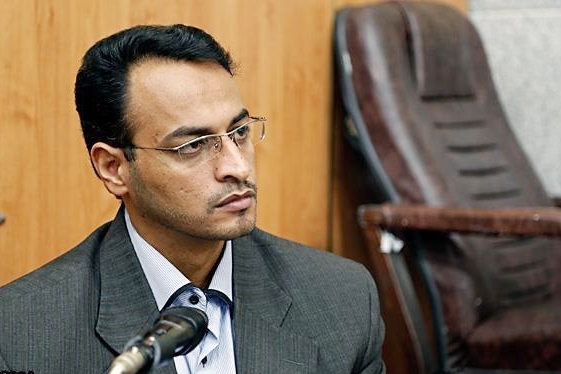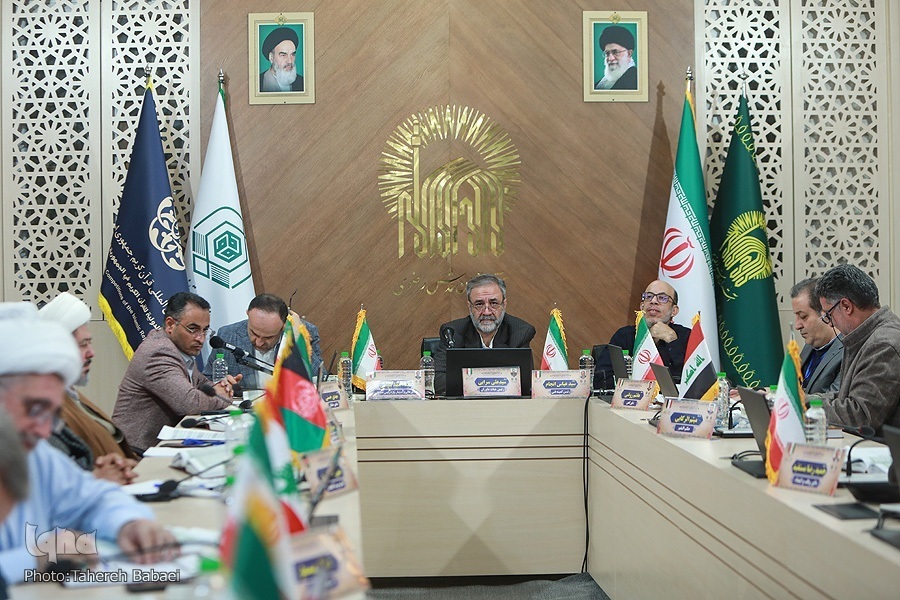Know the Rules, Improve Your Score: Judge Offers Tips for Quran Competitors

Speaking to IQNA on the sidelines of Iran’s 41st International Quran Competition, Mahdi Hassani offered recommendations for participants, pointing to the importance of familiarity with Iran’s competition regulations.
“Even the permissible pause between two verses is specified in the Iranian competition rules. Additionally, if a contestant corrects a mistake immediately before a warning from the guide, they will lose fewer points. Knowing these details can significantly improve performance,” he advised.
He also highlighted the influence of cultural backgrounds on recitation styles. “The style of each qari and memorizer is shaped by their country’s traditions. As a result, we witness a variety of recitations in competitions. Some participants, based on their national culture, focus less on melody and rhythm, while others emphasize it more. Contestants should be aware of what the Iranian judges expect from them,” he said.
Read More:
Hassani pointed out that different evaluation criteria across countries mean that a participant might not achieve a high ranking in Iran but could excel in competitions where Tajweed is the primary criterion.
Addressing the question of why there is no unified regulation for international Quran competitions, Hassani cited the differing priorities of various countries.
“There are diverse perspectives regarding Tajweed, Sawt (beautiful voice) and Lahn (rhythm), and Waqf and Ibtida (pause and start) techniques. Each country places varying degrees of importance on these aspects, which prevents the formation of a unified approach. I don’t believe a single standard can be established,” he said.
He added that countries such as Saudi Arabia, the UAE, and Qatar prioritize strict Tajweed adherence over vocal aesthetics, leading them to exclude scoring criteria for melody and rhythm. In contrast, countries like Iran and Egypt emphasize vocal beauty and grant more weight to it in their scoring system. “Given these differences, achieving a unified evaluation framework remains a challenging task,” Hassani said.
Read More:
Elsewhere, talking about the competition in Mashhad which wrapped up Friday, Hassani noted that the competition’s venue, Imam Reza (AS) shrine, was an appropriate setting which enhanced the spiritual experience for participants.
“The presence of contestants in Mashhad allowed them to become more familiar with the teachings of Imam Reza while also experiencing the sanctity of the shrine, its pilgrims, and religious sites. This has a positive impact on their minds, and the capacity for holding the competition annually in Mashhad exists,” he stated.

Hassani noted that the standard of participants met expectations. He highlighted an improvement in quality compared to past editions when the preliminary rounds were held in person in Iran without prior screening. “Previously, weaker participants were occasionally seen due to the lack of an initial assessment, but this time, the technical level of the final stage was satisfactory,” he explained.
Read More:
Discussing the challenges faced by judges, he pointed out the difficulty of evaluating a large number of contestants, particularly when their skill levels vary significantly. “A major challenge arises when the number of participants is high, but their technical proficiency is low, requiring judges to repeatedly revisit specific words and passages,” he said.
Another significant challenge, Hassani noted, is the diversity of Quranic narrations among international contestants. “In global Quran competitions, we often encounter participants who have memorized the Quran using narrations other than ‘Hafs from Asim.’ These variations present a serious challenge for judges. The head guide, in particular, must have complete mastery over different recitation methods to avoid misguiding contestants,” he emphasized.
4264047



